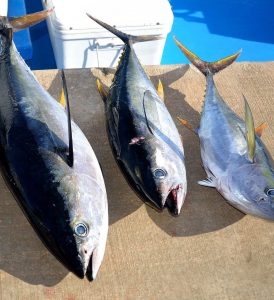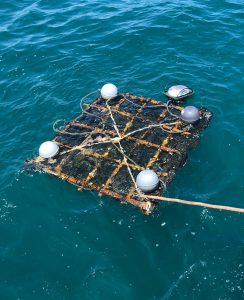As consensus on a measure for tropical tunas at ICCAT could not be reached at the 23rd Special Meeting of the ICCAT Commission, it is vital that the Commission comes together to develop a measure ready for the Annual Session later this year. The below considerations should be prioritised at the upcoming intersessional meeting of Panel 1.
 Although the 2021 bigeye tuna (BET) stock assessment indicates early signs of recovery commencing, thanks to the stock rebuilding plan, the Standing Committee on Research and Statistics (SCRS) warns that results should be interpreted with caution. This stock remains overfished, so the need remains to enable BET stock recovery with a high probability as soon as feasible. In addition, IPNLF is concerned that the yellowfin tuna (YFT) catch has consistently overshot the Total Allowable Catch (TAC) through 2014 to 2021, in some years by as much as 35%. Whilst catches in 2021 were only 600 tonnes above the TAC, the SCRS states that catches above 120,000t are expected to further degrade the condition of this important stock. Recognising the consistent need for precaution, while also seeking to ensure fisheries management is both sustainable and equitable, IPNLF urge ICCAT to achieve the following:
Although the 2021 bigeye tuna (BET) stock assessment indicates early signs of recovery commencing, thanks to the stock rebuilding plan, the Standing Committee on Research and Statistics (SCRS) warns that results should be interpreted with caution. This stock remains overfished, so the need remains to enable BET stock recovery with a high probability as soon as feasible. In addition, IPNLF is concerned that the yellowfin tuna (YFT) catch has consistently overshot the Total Allowable Catch (TAC) through 2014 to 2021, in some years by as much as 35%. Whilst catches in 2021 were only 600 tonnes above the TAC, the SCRS states that catches above 120,000t are expected to further degrade the condition of this important stock. Recognising the consistent need for precaution, while also seeking to ensure fisheries management is both sustainable and equitable, IPNLF urge ICCAT to achieve the following:
A number of States have previously suggested the bigeye TAC should be increased in order to meet the more equitable allocation needs of developing coastal States. IPNLF believes that meeting the rights and needs of all nations, especially those representing small-scale fisheries which support impoverished coastal communities in developing coastal States, should not be conditional upon increased catches being imposed upon an already overfished stock. Instead, we urge the Commission to:
 In the Atlantic, both the bigeye and yellowfin tuna stocks face immense pressure due to excessive juvenile harvests which are driven most by industrial purse seine fleets’ use of drifting fish aggregating devices (dFADs). Last year, the SCRS clearly and regularly emphasised the need to protect both the bigeye and yellowfin tuna stocks from increased juvenile catches, driven by dFAD use, including during the Intersessional meeting of Panel 1 and the Annual Session. In addition, ambitious steps have been taken in other ocean areas to implement effective FAD management and we therefore urge ICCAT to also incorporate additional improvements such as those endorsed at the recent IOTC Special Session. To achieve this, it is essential that FAD use is more transparent, better understood through the timely provision of FAD data, and better managed as a result. Therefore, IPNLF urge ICCAT to:
In the Atlantic, both the bigeye and yellowfin tuna stocks face immense pressure due to excessive juvenile harvests which are driven most by industrial purse seine fleets’ use of drifting fish aggregating devices (dFADs). Last year, the SCRS clearly and regularly emphasised the need to protect both the bigeye and yellowfin tuna stocks from increased juvenile catches, driven by dFAD use, including during the Intersessional meeting of Panel 1 and the Annual Session. In addition, ambitious steps have been taken in other ocean areas to implement effective FAD management and we therefore urge ICCAT to also incorporate additional improvements such as those endorsed at the recent IOTC Special Session. To achieve this, it is essential that FAD use is more transparent, better understood through the timely provision of FAD data, and better managed as a result. Therefore, IPNLF urge ICCAT to: